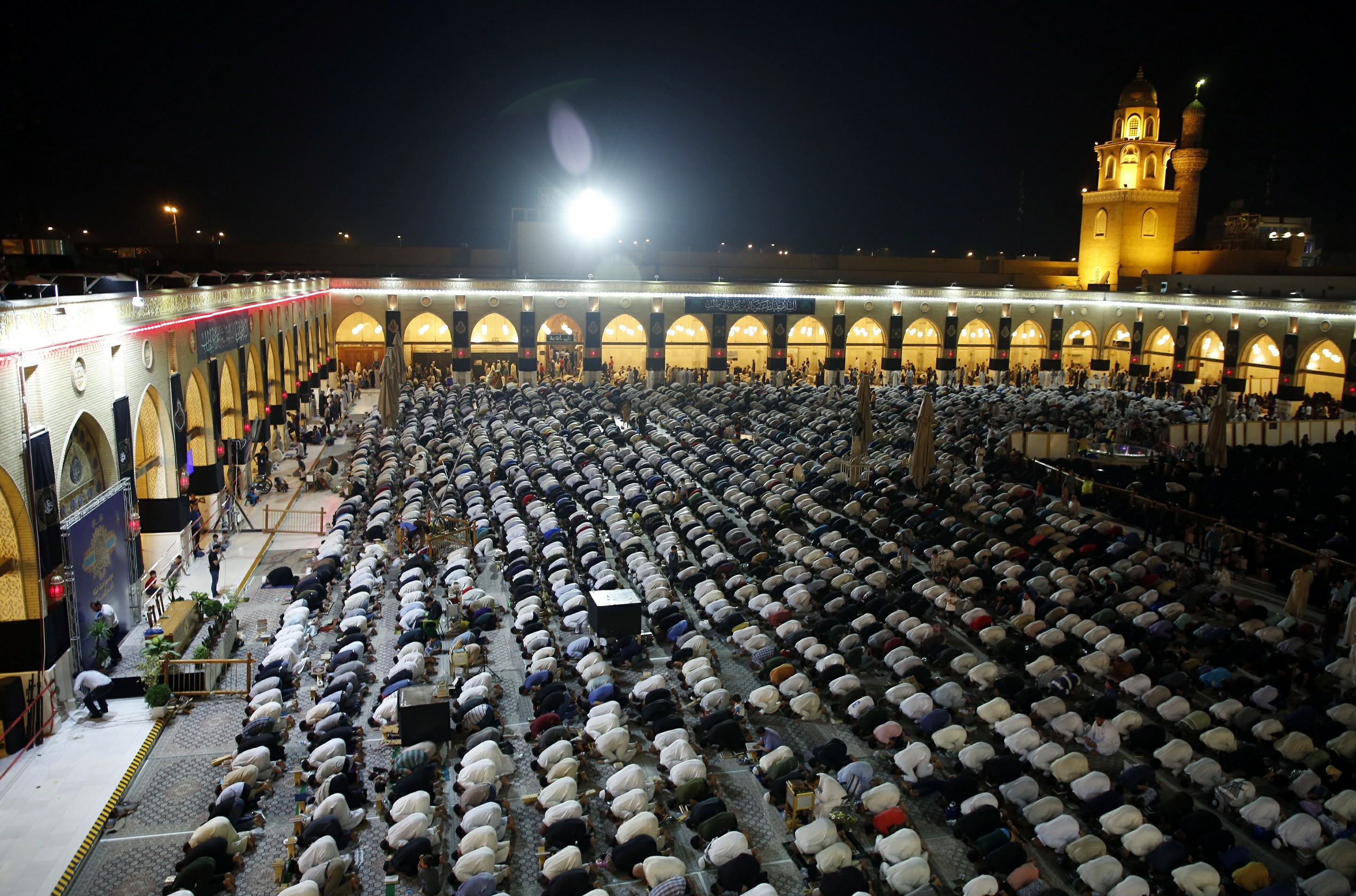Continuing with the verse, Allah says:
ولَذِكْرُ اللٌّهِ أَكْبَرُ
“The dhikr (remembrance) of Allah is superior and more virtuous.”
The apparent meaning of the above sentence appears to mention a more important philosophy for the prayers. It mentions another effect of prayers - an effect that is even more important than ‘keeping one away from indecency and evil’ - and that is, it causes man to remember Allah - this being the basis of every goodness and the foundation of all felicities.
In reality, its superiority and importance is due to the fact that it is the cause for it (keeping one away from indecency and evil). Basically, remembrance of Allah keeps the hearts alive and sets them at rest, and no other thing can be likened to it in significance and importance.
أَلاَ بِذِكْرِ اللٌّهِ تَطْمَئِنُّ الْقُلُوبُ
“Surely by Allah’s remembrance are the hearts set at rest.”
Essentially, the soul of every act of worship - whether it is a prayer or something else - is remembrance of Allah. The preliminary acts of the prayer, the recitations and actions in it, the supplications after the prayers - all of these - serve to revive the remembrance of Allah within a man’s heart.
Worthy of attention is that an allusion has been made to this fundamental philosophy of prayer in Surat Taha, when Prophet Musa (a.s) is addressed as:
أَقِمِ الصَّلاةَ لِذِكْرِي
“And keep up prayer for My remembrance.”
In a tradition, Mu’adh b. Jabal states: No deed of man, for protecting him from divine chastisement, is greater than ‘remembrance of Allah’.
When he was asked: Not even Jihad in the way of Allah? He replied: No (not even Jihad), for Allah has said:
ولَذِكْرُ اللٌّهِ أَكْبَرُ
Although the philosophy of prayer is not something that is hidden from anyone, a more careful study of the text of the Qur`an and the traditions guide us towards some more subtle points in this regard:
The spirit, foundation, objective, result and ultimately the philosophy of prayers is remembrance of Allah - the same ذكر الله, which, in the above verse, has been referred to as the optimum result. However, it should be a remembrance that brings about ‘reflection’, and a ‘reflection’ that leads to ‘deeds’. In a tradition Imam as-sadiq (a.s), interpreting the sentence:
ولَذِكْرُ اللٌّهِ أَكْبَرُ
said:
ذِكْرُ اللٌّهِ عِنْدَ مَا أَحَلَّ وحَرَّمَ.
“Remembrance of Allah at the time of performing a lawful or a forbidden act.”
It means to remember Allah and seek that which is permitted and refrain from that which is forbidden.
Prayers are a means for washing away the sins and achieving divine forgiveness since they invite man towards repentance and rectification of the past. Hence we read in a tradition that once the Noble Prophet (s.a.w) questioned his companions: If there flowed, at the doorstep of one of your houses, a river with pure and clean water and if the owner happened to wash himself in it five times a day, would there be any dirt or uncleanness on his body? The companions replied: No. The Noble Prophet (s.a.w) then said: The prayer is similar to this flowing water. Whenever one offers a prayer, the sins committed between two prayers get washed away.
Thus, by means of the balm of prayers, the wounds that get inflicted upon man’s soul as a result of sins get healed and the rust that forms on the heart is eliminated.
The prayer is a barrier against future sins. It strengthens the spirit of faith within man and fosters the seedling of Taqwa (piety) within his heart. We know that faith and piety are the strongest barriers against sins and this is exactly what has been referred to in the verse as ‘keeping one away from indecency and evil’. Similarly, we read in numerous traditions, that when the state of affairs of some sinning individuals was brought to the notice of the A`immah G, they said: “Don’t worry! The prayer shall reform them” and it did!
Source:
180 Questions Enquiries About Islam
[Volume One: The Practical Laws, Pg. 26-28].
Ayatullah al-`Uzma al-Hajj ash-Shaykh Nasir Makarim Shirazi
The Islamic Education Board of the World Federation of Khoja Shia Ithna-Asheri Muslim Communities.

